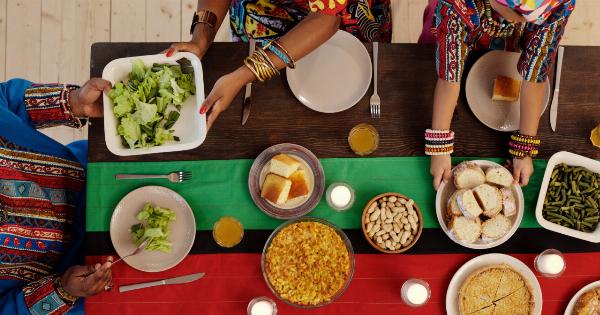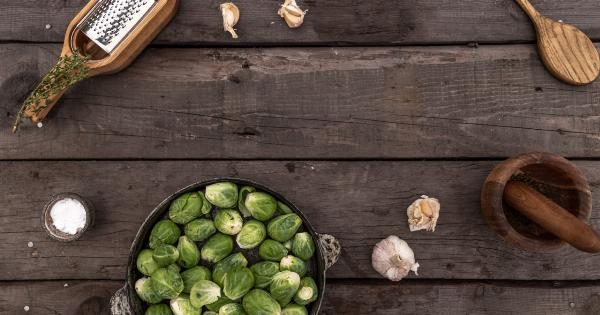As humans, we have evolved to eat cooked foods and have been doing so for thousands of years. However, in recent years, there has been a rise in popularity of raw food diets and many people believe that eating raw foods is better for the body.
But what is the truth? Should we be eating raw foods or cooked foods for the benefit of our intestines? In this article, we will explore the pros and cons of both types of foods and help you make an informed decision about what to eat for a healthy gut.
What are Raw Foods?
Raw foods are those that have not been cooked, processed, or heated above 118 degrees Fahrenheit. This includes fruits, vegetables, nuts, seeds, and grains.
Raw foodists believe that cooking destroys the natural enzymes and nutrients in foods and can lead to a host of health problems. They argue that eating raw foods can help you lose weight, improve your digestion, and boost your immune system.
Pros of Raw Foods
One of the main benefits of eating raw foods is that they are high in nutrients. Raw fruits and vegetables are packed with essential vitamins and minerals that are important for optimal health.
They are also high in fiber, which is important for maintaining a healthy digestive system. The fiber in raw foods helps to move food through the intestines, preventing constipation and promoting regular bowel movements.
Eating raw foods can also help to reduce inflammation in the gut. Many people suffer from digestive disorders such as irritable bowel syndrome (IBS), Crohn’s disease, and ulcerative colitis, which can cause inflammation and discomfort.
Raw foods have natural anti-inflammatory properties, which can help to soothe the gut and reduce symptoms.
Another benefit of eating raw foods is that they are low in calories. This makes them a great choice for people who are trying to lose weight or maintain a healthy weight.
Raw foods are also easy to digest, which means that the body can use the nutrients more efficiently.
Cons of Raw Foods
While there are many benefits to eating raw foods, there are also some drawbacks. One of the main concerns with raw foods is the risk of foodborne illness.
Raw foods are not cooked, which means that they may still contain harmful bacteria and viruses that can cause illness. This is especially true for raw meat, fish, and eggs.
Eating raw foods can also be difficult for some people. Raw fruits and vegetables can be tough to chew and digest, which can cause bloating and discomfort.
Additionally, raw foods can be more expensive than cooked foods, since they require more time and effort to prepare.
What are Cooked Foods?
Cooked foods are those that have been heated and/or processed in some way. This includes boiled, baked, grilled, and fried foods. Cooking has been a part of human culture since the dawn of time, and it has many benefits.
Pros of Cooked Foods
Cooking helps to destroy harmful bacteria and viruses that can cause foodborne illness. It also makes foods easier to digest and can help to release nutrients that are bound up in the food.
Cooking can also improve the flavor and texture of foods, making them more enjoyable to eat.
Cooked foods are also easier to store and transport than raw foods. They can be stored in the refrigerator or freezer for several days, which makes meal planning and preparation easier.
This is especially important for people who lead busy lives and don’t have time to prepare fresh meals every day.
Cons of Cooked Foods
One of the main concerns with cooked foods is that they can be high in calories, fat, and sodium. This is especially true for fried foods and processed foods, which are often high in unhealthy additives and preservatives.
Cooking can also destroy some of the natural enzymes and nutrients in foods. This is especially true for foods that are overcooked or cooked at high temperatures.
Overcooking can also create harmful compounds, such as acrylamide, which can increase the risk of cancer.
Conclusion
So, which is better for your intestine – raw or cooked foods? The truth is that both have their pros and cons. Raw foods are high in nutrients and fiber, and can help to reduce inflammation in the gut.
However, they can also be difficult to digest and carry a risk of foodborne illness.
Cooked foods, on the other hand, are easier to digest, can help to destroy harmful bacteria and viruses, and are easier to store and transport.
However, cooking can destroy some of the natural enzymes and nutrients in foods, and can create harmful compounds.
Ultimately, the best approach is to eat a balanced diet that includes both raw and cooked foods. This will ensure that you are getting a variety of nutrients and will help to keep your gut healthy.































